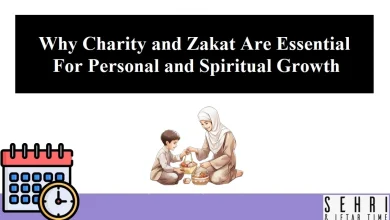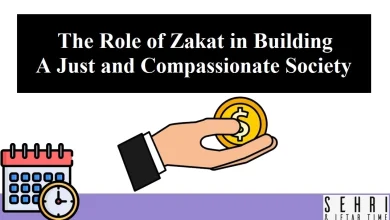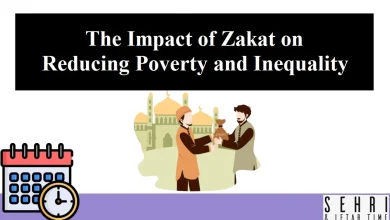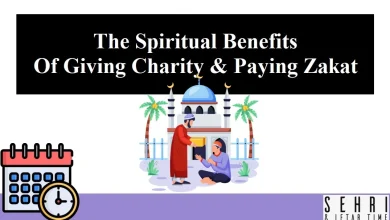Charity in Islam: The Reward of Giving from the Heart [Sadaqah]
Charity [Sadaqah] in Islam: The Reward of Giving from the Heart
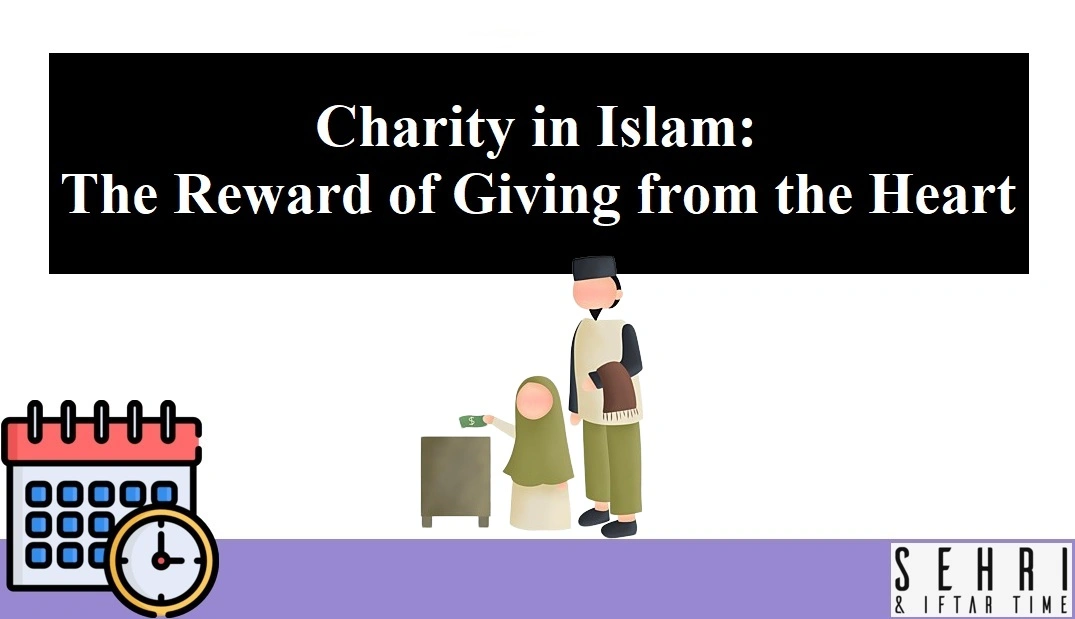
Charity in Islam: The Reward of Giving from the Heart: Charity, or “sadaqah” in Islam, is a profound expression of compassion, selflessness, and spiritual devotion. It transcends material wealth, embodying the essence of giving from the heart. Rooted deeply in Islamic teachings, charity is not merely a voluntary act but a pathway to attaining Allah’s blessings, inner peace, and societal harmony. By giving generously and sincerely, Muslims fulfill their duty to humanity while strengthening their connection with Allah. This article delves into the transformative power of charity, highlighting its significance and the immense rewards it brings.
The Central Role of Charity in Islam
Charity holds a unique place in Islam, serving as both a moral obligation and a source of spiritual purification. The Quran and Hadith emphasize the importance of giving, urging Muslims to assist the less fortunate and share their blessings. In Surah Al-Baqarah, Allah says, “Those who spend their wealth [in Allah’s way] by night and by day, secretly and publicly, will have their reward with their Lord” (2:274). This verse underscores that the act of giving, regardless of its visibility, is deeply valued in Islam.
Prophet Muhammad (peace be upon him) further emphasized the virtue of charity by stating, “Charity does not decrease wealth. Rather, it increases it” (Muslim). This paradoxical truth highlights the spiritual and material benefits of giving—it enriches the soul and invites Allah’s blessings upon one’s wealth.
The Rewards of Giving
- Spiritual Growth: Giving charity purifies the heart and fosters gratitude. It reminds the giver of Allah’s blessings and instills humility by acknowledging the needs of others.
- Forgiveness of Sins: Charity serves as a means to erase sins. The Prophet (peace be upon him) said, “Charity extinguishes sin as water extinguishes fire” (Tirmidhi). This powerful analogy reflects the transformative impact of giving on one’s spiritual state.
- Protection on the Day of Judgment: One of the most profound rewards of charity is its role as a shield on the Day of Judgment. The Prophet (peace be upon him) stated, “The believer’s shade on the Day of Resurrection will be his charity” (Tirmidhi).
- Multiplication of Rewards: Allah promises to multiply the rewards of charity manifold. Surah Al-Baqarah states, “The example of those who spend their wealth in the way of Allah is like a seed [of grain] that sprouts seven ears; in every ear, there are a hundred grains” (2:261). This divine assurance encourages Muslims to give generously, knowing that their rewards are magnified.
Charity Beyond Wealth
Charity in Islam is not confined to monetary donations. It encompasses a wide range of acts, allowing everyone to contribute regardless of their financial status. The Prophet (peace be upon him) said, “Every act of goodness is charity” (Bukhari). This broad definition includes acts like offering a smile, removing obstacles from the road, helping someone in need, or sharing knowledge. Such deeds demonstrate that charity is accessible to all and is a testament to the inclusivity of Islamic teachings.
The Social Impact of Charity
The ripple effects of charity extend far beyond individual rewards. It plays a pivotal role in building cohesive, compassionate, and equitable societies. By addressing the needs of the underprivileged, charity:
- Reduces Poverty: Donations help provide essential resources like food, shelter, and education to those in need, lifting them out of poverty.
- Fosters Unity: Charity bridges the gap between different social classes, promoting understanding and empathy.
- Strengthens Communities: Collective giving enables the establishment of institutions such as schools, hospitals, and orphanages, benefiting entire communities.
- Encourages a Culture of Generosity: When individuals lead by example, they inspire others to give, creating a virtuous cycle of kindness and generosity.
Sincerity in Giving
The reward of charity is intrinsically tied to the intention behind it. In Islam, sincerity is paramount. Allah values acts of charity that are done solely for His sake, free from any desire for recognition or personal gain. The Quran advises, “Do not invalidate your charity with reminders [of it] or injury” (2:264). This verse cautions against using charity as a means to assert superiority or gain social prestige, as such actions diminish its spiritual value.
Practical Tips for Giving Charity
- Start Small: Regularly set aside a portion of your income, no matter how modest, for charity. Small, consistent acts of giving are highly valued in Islam.
- Diversify Your Charity: Contribute to various causes, such as education, healthcare, disaster relief, or supporting orphans.
- Be Proactive: Seek out opportunities to help others, whether through local organizations, community initiatives, or personal efforts.
- Involve Your Family: Encourage children to participate in charitable acts, instilling a lifelong habit of giving.
- Reflect on Your Intentions: Ensure that your charity is driven by a desire to please Allah and benefit others.
Conclusion
Charity in Islam is a divine mandate that enriches both the giver and the recipient. By giving from the heart, Muslims not only fulfill a religious obligation but also contribute to the betterment of society. The rewards of charity are immense, encompassing spiritual growth, forgiveness of sins, and protection in the Hereafter. Moreover, the act of giving fosters compassion, unity, and social harmony, creating a ripple effect that benefits all.
As Muslims, let us embrace the profound teachings of Islam by giving sincerely and generously. In doing so, we draw closer to Allah, uplift the lives of those in need, and create a legacy of kindness that endures for generations. Truly, the reward of giving from the heart is immeasurable, both in this world and the Hereafter.
